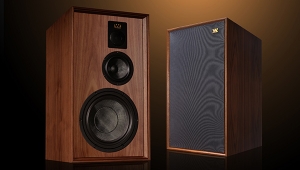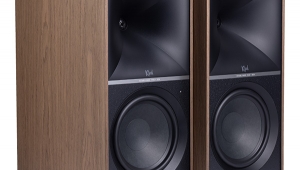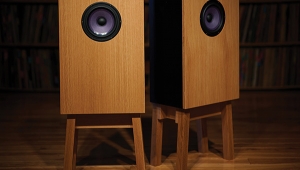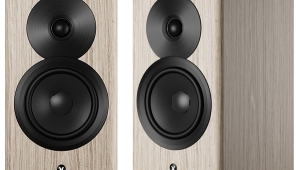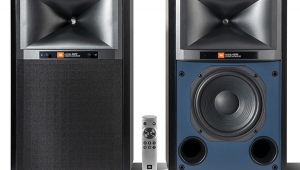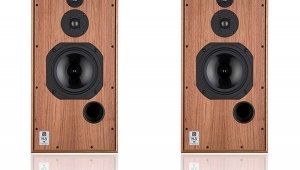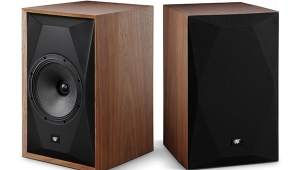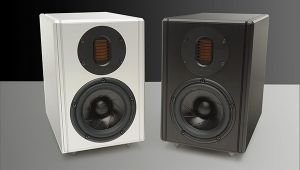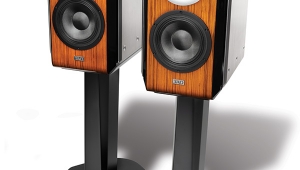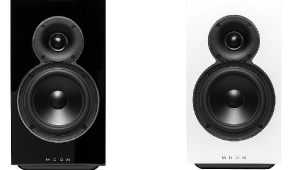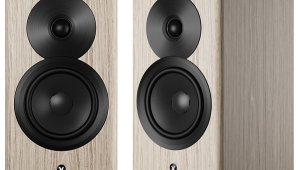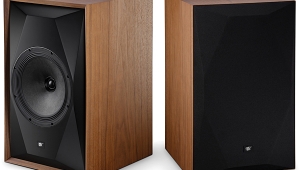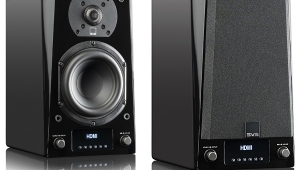| Columns Retired Columns & Blogs |
Usher Audio Technology Compass X-719 loudspeaker Page 2
I decided to turn up the volume. The bass-synth blasts on "Electric Battle Weapon 6," from the Chemical Brothers' American EP (LP, Virgin/Astralwerks ASW 43338), are true lease-breakers. I cranked up the system to about 110dB. Walls were shaking. Floors were shaking. My dog began barking violently. But the Ushers didn't flinch—despite my predilection for listening to delicate piano recordings with these speakers, the Ushers could party hearty when asked to.
The X-719's most noticeable weakness became evident with busy recordings that have considerable program material in all frequency ranges. As the speaker's high-frequency and bass performances were both rather forward, the midrange sounded a bit laid-back in comparison, leading to a sense of disconnectedness. For example, in "When You Walk Into My Dreams," from Gary Wilson's You Think You Really Know Me (CD, Motel MRCD007), Wilson's rapid Fender-bass articulations cover the instrument's entire range. The bass's lower register was quick, forceful, and dramatic through the Usher, the upper register delicate and laid-back; at times, it sounded as if I was hearing two different bass players trading riffs.
This was not a problem with solo piano or vocal-and-guitar recordings, but the Usher tended to lose coherence across the frequency spectrum when reproducing densely orchestrated classical works. The recording that best illustrated the X-719's combination of strengths and weaknesses was Antal Dorati's performance of Stravinsky's Firebird Suite (LP, Mercury Living Presence SR 90226). The orchestra was portrayed as big, bright, dynamic, and vibrant across a wide, deep stage, not sounding for a minute as if I was playing a recording through bookshelf speakers. The bass-drum thwacks, although a tad larger than life and with a slight bit of overhang, shook the room with no trace of coloration or artificial resonance. However, during the densely orchestrated tuttis, the trumpets and upper-register trombones were a bit too forward and blatty, and the somewhat forward perspective of the Mercury Living Presence "sound" was quite apparent.
Do they compete?
I compared the Usher Compass X-719 ($1000/pair) with the NHT SB-3 ($600/pair), the Polk RT25i ($319/pair), and the Alón by Acarian Systems Petite ($1000/pair). (The last two models had been discontinued at the time of writing.)
The Polk RT25i impressed me with its dead-neutral midrange, sounding even more natural than the Usher, but without as much body as the Usher in the midrange. The Polk's high frequencies were even more extended and delicate than the Usher's. Although the Polk's mid- and upper bass were less colored than the Usher's, the Usher's low frequencies were far more extended, and the speaker trounced the Polk in its ability to provide high-level dynamic slam without compression or strain.
The NHT SB-3 sounded sweeter and more romantic than the Usher. Its vocal reproduction was as rich, but more delicate, and its high frequencies were more detailed. The NHT's low-level dynamic articulation seemed more continuous and involving than the Usher's, and its integration of midrange, highs, and bass was far more coherent. However, the NHT's bass was not as bloomy or as forceful, and, at high levels, the SB-3 suffered from compression. Moreover, the NHT sounded more closed-down than the Usher, and like a much smaller speaker.
Finally, the Alón Petite was far superior to the Usher in overall neutrality, coherence, detail resolution, and delicacy across the frequency spectrum. The Usher's bass went far deeper, however, and the X-719 was much better than the Alón in terms of high-level dynamic articulation and sense of power without compression or strain.
Summing up
I enjoyed the time I spent listening to a wide range of program material through the Compass X-719s. Curiously, they performed best with delicate, simple acoustic music, such as solo piano recordings, and bombastic, electronic rock recordings. In addition, while its low-frequency character is more buxom than sticlty accurate, the X-719's bass extension and high-level dynamic capability have set new benchmarks for a bookshelf speaker.
Whether or not the Usher Audio Technology Compass X-719 is right for you will depend on your musical tastes, listening biases, and associated equipment. In any event, the drop-dead-gorgeous Compass X-719 is a welcome addition to the American marketplace. I look forward to hearing other Usher speakers.
- Log in or register to post comments
